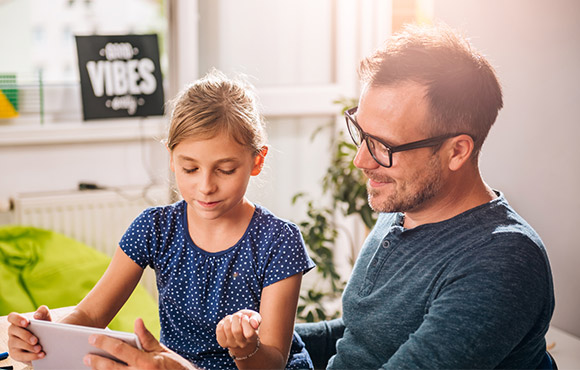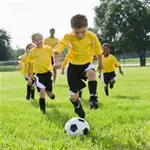For kids, social media can no longer be dismissed as a time-waster or distraction. The networks your kids use to communicate with their friends and share videos will eventually become their core business tools and career prerequisites. If your kids don’t learn to use them, they will likely face a massive disadvantage when they enter the workforce.
So how do you ensure they’re prepared to make intelligent choices online? These simple tips are a good place to start.
Respect Their Boundaries
1 of 8
Once a kid is up and running on social media, it's important to let them spread their wings. When they first start logging on, you might want to like or comment on posts where appropriate, but taper off this behavior over time. It's important to build trust and let them establish their online relationships on their own terms, without the constant reminder that their parents can see everything they are doing.
Find:
Kids ActivitiesProvide Balance
2 of 8
Encourage your kid to spend the same amount of time offline that they spend online. Whether it's simply requiring certain communication to be done via phone or in person, or setting aside time for activities not related to social networks, a healthy mix is essential for a balanced lifestyle. When kids are on social networks, consider pointing out if real-life friends are online—and then encourage them to connect in the actual world, instead.
Find:
Kids ActivitiesGet Information Straight from the Source
3 of 8
All major social networks offer resources for families and parents, which include explanations of each service, how-to guides and specific discussion topics for adults and kids.
Visit one of these for more information:
Facebook Family Safety Center
Twitter Safety Tips for Parents
Instagram Safety Tips for Parents
Snapchat Safety Tips for Parents
Find:
Kids ActivitiesDiscuss Online Citizenship
5 of 8
Parents are extremely good at teaching their kids how to be model citizens; they teach kids not to grab toys from other people, to use words instead of their fists in a conflict they and remind them of the Golden Rule. These lessons get reinforced hundreds of times throughout their lives.
Just like proactively teaching kids about their behavior in everyday life, parents need to be prepared to discuss what good behavior online looks like. Even if that means just sharing expectations—that kids won't ask for or send inappropriate photos, or that they'll stay off sites that don't have kid-appropriate content—can go a long way.
Find:
Kids ActivitiesTeach Kids the Signs of Dangerous Websites
6 of 8
Adults experienced in the internet tend to have a list of criteria that signals to them if a website may be dangerous. Repetitive popups, spammy content or an out-of-date design can all trigger subconscious and conscious alarms. It's important to teach children these same things, just as we would teach them to avoid dark alleyways.
Find:
Kids ActivitiesRespect Their Boundaries
7 of 8
Once a kid is up and running on social media, it's important to let them spread their wings. When they first start logging on, you might want to like or comment on posts where appropriate, but taper off this behavior over time. It's important to build trust and let them establish their online relationships on their own terms, without the constant reminder that their parents can see everything they are doing.
Find:
Kids ActivitiesProvide Balance
8 of 8
Encourage your kid to spend the same amount of time offline that they spend online. Whether it's simply requiring certain communication to be done via phone or in person, or setting aside time for activities not related to social networks, a healthy mix is essential for a balanced lifestyle. When kids are on social networks, consider pointing out if real-life friends are online—and then encourage them to connect in the actual world, instead.







Discuss This Article